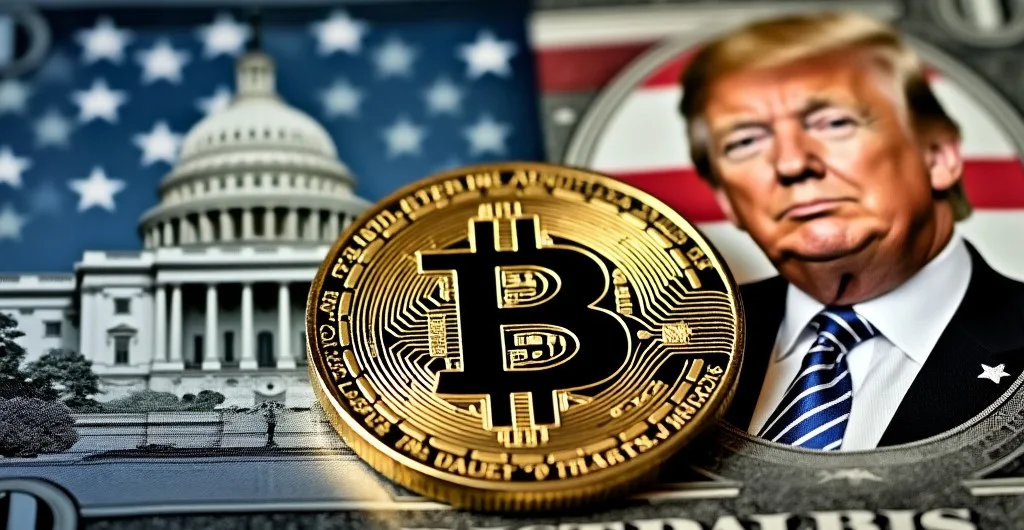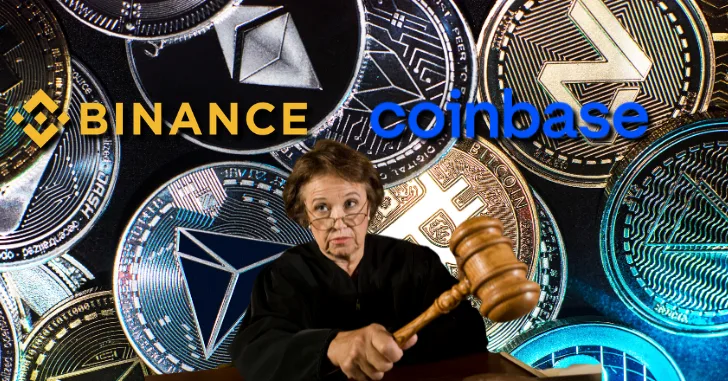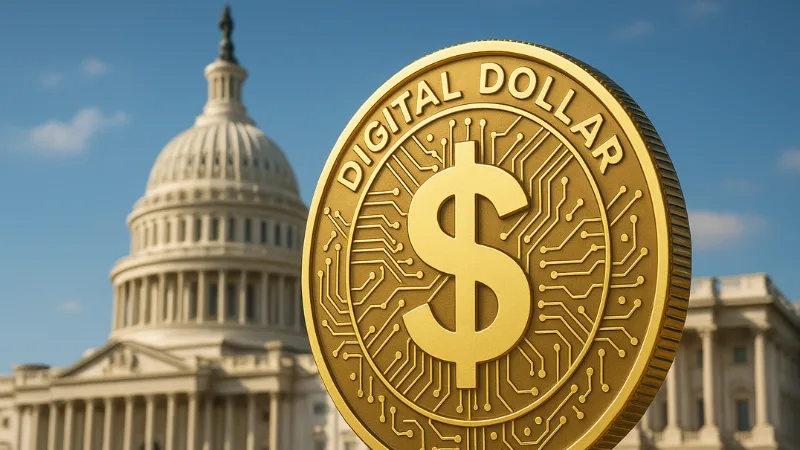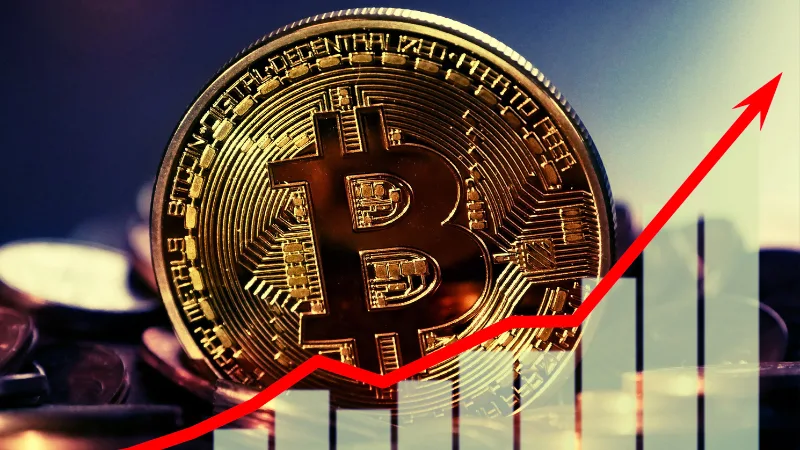The idea of Bitcoin becoming a reserve currency for the United States is no longer just a theoretical thought experiment. As digital assets continue to gain prominence, the prospect of Bitcoin replacing fiat currencies as a central monetary reserve has entered mainstream political and financial discussions. This article examines the arguments for and against Bitcoin as a reserve currency, explores what Donald Trump might do to champion this cause if reelected, delves into the challenges of implementing such a policy, and analyzes how it could transform everyday life for Americans.
The Case for Bitcoin as a Reserve Currency
Proponents of Bitcoin as a reserve currency argue that it offers unique benefits compared to traditional fiat currencies like the U.S. dollar:
- Protection Against Inflation
Bitcoin’s fixed supply of 21 million coins ensures it cannot be inflated like fiat money, making it a potential hedge against currency devaluation. This could stabilize purchasing power and protect citizens’ savings over the long term. - Decentralization and Transparency
Bitcoin’s blockchain technology allows for decentralized and transparent transactions. A reserve currency based on Bitcoin could reduce corruption and enhance trust in the financial system. - Global Trade Efficiency
As a borderless digital currency, Bitcoin could streamline international trade by reducing reliance on intermediaries and minimizing exchange rate fluctuations. - Reduced Monetary Policy Risks
By removing the ability to arbitrarily print money, a Bitcoin reserve currency could prevent fiscal mismanagement and excessive debt accumulation, forcing governments to adopt more disciplined spending habits. - Innovation Catalyst
A Bitcoin-based reserve system could spur advancements in blockchain technology, digital infrastructure, and financial literacy.
The Arguments Against Bitcoin as a Reserve Currency
Despite its potential, critics point to significant challenges and risks associated with making Bitcoin a reserve currency:
- Price Volatility
Bitcoin’s value is notoriously volatile, driven by speculation and market sentiment. This unpredictability could destabilize the economy and make it difficult for businesses and consumers to plan long-term. - Energy Consumption
Bitcoin mining consumes vast amounts of energy, raising concerns about its environmental impact. Without a transition to renewable energy, adopting Bitcoin could exacerbate climate change issues. - Loss of Monetary Policy Control
Governments rely on monetary policy tools, like adjusting interest rates and printing money, to manage economic crises. Bitcoin’s fixed supply would eliminate these options, potentially leaving the economy vulnerable during downturns. - Accessibility and Inclusion
Not everyone has access to the technology required to use Bitcoin, which could exacerbate the digital divide and financial inequality. - Regulatory and Legal Challenges
Bitcoin’s pseudonymous nature makes it a target for illicit activities. Regulating it effectively while maintaining its decentralized ethos would be a complex undertaking.
Donald Trump’s Stance on Bitcoin
Donald Trump’s relationship with Bitcoin has evolved over time. While he once dismissed cryptocurrencies as a “scam,” he has recently taken a more supportive stance. During his 2024 campaign, Trump proposed the creation of a federal Bitcoin strategic reserve, aiming to position the U.S. as a global leader in digital assets. He has also criticized the regulatory approach of SEC Chair Gary Gensler, advocating for a more crypto-friendly environment.
As President, Trump could take several steps to advance Bitcoin as a reserve currency:
- Establish a Bitcoin Reserve: Trump could initiate federal purchases of Bitcoin to diversify the nation’s monetary reserves.
- Legislation for Adoption: He could push for legislation to integrate Bitcoin into the financial system, including tax incentives for Bitcoin adoption.
- Streamlining Regulations: Trump could overhaul cryptocurrency regulations to make the U.S. more competitive as a hub for digital assets.
Challenges to Implementing Bitcoin as a Reserve Currency
Trump, or any leader attempting to implement such a policy, would face significant obstacles:
- Institutional Resistance
Financial institutions, central banks, and many policymakers are deeply entrenched in the fiat system and may resist such a drastic shift. - Public Education and Adoption
A lack of understanding about Bitcoin could hinder its acceptance. Broad public education campaigns would be necessary to build trust and competence in using the currency. - Global Implications
The U.S. dollar’s role as the world’s primary reserve currency gives the country significant geopolitical power. Transitioning to Bitcoin could disrupt global financial stability and alienate key allies. - Technical and Security Risks
Scaling Bitcoin for use as a national reserve would require significant technological investment and robust cybersecurity measures to prevent hacks or system failures.
Impact on Everyday Life for Americans
If Bitcoin were adopted as a reserve currency, it would profoundly affect the daily lives of American citizens:
Financial Stability
- Prices could stabilize or even decrease over time due to Bitcoin’s deflationary nature, benefiting savers but discouraging borrowing and spending.
- Inflation would no longer erode the value of savings, potentially fostering a culture of financial discipline.
Transactions and Banking
- Bitcoin could become a standard payment method, requiring individuals and businesses to adapt to using digital wallets and blockchain technology.
- Banks would transition to offering Bitcoin-related services, such as custodial accounts and loans collateralized by Bitcoin.
Salaries and Taxes
- Employers might pay salaries in Bitcoin, and governments could collect taxes in the cryptocurrency. This could simplify global transactions but might introduce volatility into personal finances.
Privacy and Transparency
- Blockchain technology would enhance transparency in financial transactions but might reduce privacy unless new anonymization technologies are adopted.
Wealth Redistribution
- Early Bitcoin adopters would see significant gains, potentially increasing wealth inequality. Policymakers would need to address these disparities.
Conclusion
The idea of Bitcoin as a reserve currency is both revolutionary and contentious. While its adoption could offer protection against inflation, foster innovation, and reduce fiscal mismanagement, the associated challenges—such as volatility, energy consumption, and regulatory hurdles—are significant.
If Donald Trump were to champion this cause as President, he would face resistance from entrenched institutions and skepticism from the public. However, with careful planning and gradual implementation, the United States could leverage Bitcoin to maintain its financial leadership in an increasingly digital world. Whether the benefits outweigh the risks remains a matter of intense debate, but one thing is clear: Bitcoin’s role in global finance is no longer a question of if, but when.
If you want to learn more on how Bitcoin may be the answer to the United State’s growing debt, check out this article Elon Musk’s Debt Crisis Warning Fuel for a Bitcoin Boom to Rival Gold?





